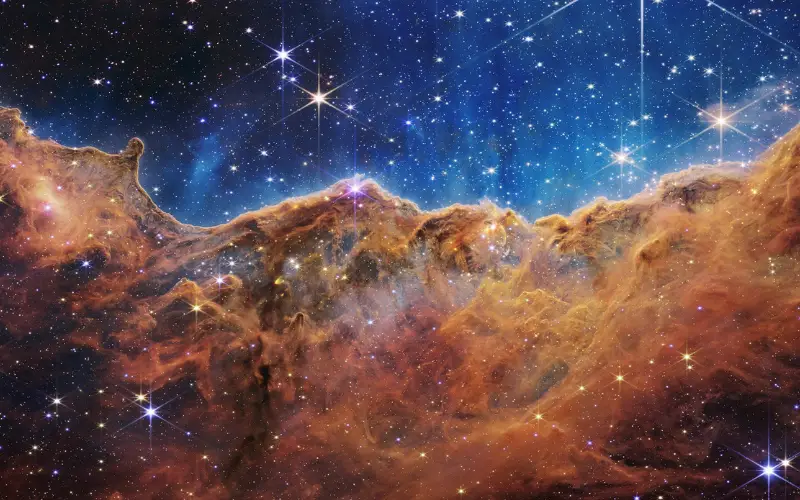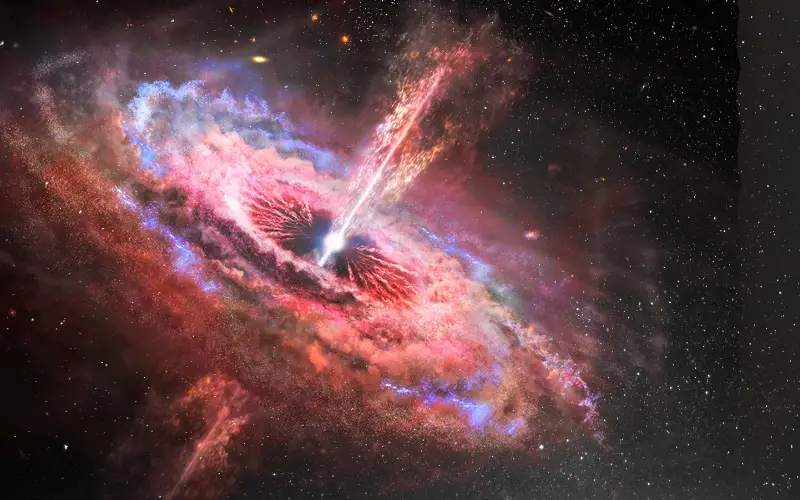In the vast realm of scientific exploration, there exist phenomena and enigmas that continue to elude the understanding of even the most brilliant minds. From the depths of the cosmos to the intricacies of our own biological systems, the mysteries that persist defy easy explanation. In this blog, we embark on a journey through 15 captivating scientific mysteries that, despite the relentless pursuit of knowledge, remain unsolved. These enigmatic puzzles span various disciplines, challenging scientists and researchers to unravel the secrets concealed within the fabric of the universe. Join us as we delve into the perplexing frontiers of science, exploring the questions that inspire awe, curiosity, and the relentless pursuit of discovery.
The List of 15 Scientific Mysteries Yet To be Solved
1. Tardigrades

You might be familiar with tardigrades, commonly known as eight-legged microorganisms often discovered around mossy trees. These remarkable beings can endure life without water, endure temperatures ranging from -328 to 304 degrees Fahrenheit, and even persist in the harsh conditions of outer space. The extraordinary survival capabilities of tardigrades have led to speculation about their extraterrestrial origin, but scientists maintain that they originated on Earth. Despite extensive gene sequencing efforts, scientists have yet to precisely categorize tardigrades or determine their phylum, leaving questions about whether they are insects, worms, or crustaceans.
2. Life After Death

Those who have perished and returned to share their experiences haven’t truly encountered permanent death. Or have they? Undoubtedly, their encounters lack a sense of permanence. This prompts the question: Does life persist after an irreversible demise? Delving into this inquiry is challenging, given that returning from an unrecoverable death is inherently impossible. Nevertheless, certain scientists assert that life after death is an established scientific fact. Conversely, others argue that, from a quantum physics perspective, life after death is implausible. Explore the sensations associated with a near-death experience, as explained by scientific understanding.
3. Life’s Start

We’re delving into the realm of life itself, encompassing not only human life but all forms of existence. Scientific speculation abounds, with continuous discoveries shedding light on how life’s fundamental components might have originated in primordial settings or arrived on Earth from outer space. Complicating matters, scientists remain divided on the field of science that will unveil the answers, or even if science is the appropriate domain for exploration. Explore these so-called science “facts” that, in reality, lack accuracy.
4. Radio Bursts From Space

Somewhere in the vast expanse of the cosmos, a notable commotion is underway. Scientists have detected substantial bursts of radio waves originating from a distance of three billion light-years away, determined through intricate calculations. While some speculate these signals could be from an advanced extraterrestrial civilization, researchers at Breakthrough Listen, a scientific program focused on identifying signs of intelligent life, have not entirely dismissed this hypothesis, as reported by CNN. However, the mystery persists, with alternative theories considering phenomena like black holes and dying stars. Explore these 51 “facts” that, in reality, are not factual.
5. Egypt’s Great Pyramids

Built between 2589 and 2504 B.C., the Egyptian pyramids would stand as impressive feats of engineering and physics even if constructed in the present day. The question arises: how did the ancient people living in the ancient desert accomplish such a marvel? Some reputable scientists entertain the idea that extraterrestrial beings from another planet might have played a role. Conversely, other scientists propose more earthly solutions involving ramps, wet sand, and pulleys. The only certainty is that our understanding remains incomplete.
6. Sleep

We are aware that the human body follows a sleep-wake cycle, spending roughly a third of our lives in slumber. During sleep, our bodies undergo repair, and dreaming occurs. We understand various ways in which sleep influences our well-being. However, not all living organisms share this need for sleep. So, why do we? One compelling theory suggests that sleep plays a crucial role in the brain’s plasticity. Scientists are actively exploring this idea, particularly by studying “glia” cells. Stay tuned for further developments. Meanwhile, test your knowledge with these science trivia questions that often stump people.
7. Intelligent Life Outside Of Earth

The Great Pyramids. Stonehenge. Crop circles. How did these marvels occur without assistance from intelligent beings from beyond our planet? While no evidence of extraterrestrial intelligent life has been discovered, basic probability suggests that somewhere in the vast cosmos, entities with intelligence comparable to or exceeding that of Earthlings might exist. However, even if extraterrestrial intelligent life were a reality, would our earthly senses be equipped to recognize it? At present, the entire concept remains shrouded in mystery.
8. Octopus Walk Out Of The Sea

It’s not a puzzle; it’s a real occurrence. In 2017, numerous octopuses ventured out of the ocean, making their way along the coast of a Welsh seaside town on a nightly pilgrimage to a destination unknown… and for reasons unclear. National Geographic consulted with several experts who offered diverse theories, ranging from octopus dementia, displacement due to storms, to a population surge prompting octopuses to search extensively for food. However, none of these explanations account for the sudden halt of the exodus just three days later.
9. Dark Matter

Most of the universe is thought to consist of “dark matter,” a substance devoid of light or energy emission, according to scientists. While researchers can specify what dark matter is not, its actual composition and nature elude their understanding. Sean Carroll, a cosmologist from the California Institute of Technology, remarked to Smithsonian Magazine, “We have a complete inventory of the universe, and it makes no sense.” Until scientists can unravel this enigma, the ultimate destiny of the universe will persist as an enduring unknown.
10. Amelia Earhart

Amelia Earhart achieved historic milestones as the first woman to fly solo across the Atlantic and the initial individual to solo from Hawaii to the U.S. mainland. However, her legacy took a mysterious turn during a global flight attempt in July 1937. Over the Pacific, Earhart disappeared without a trace, and the wreckage of her plane was never located. History.com notes that her vanishing act remains one of the most compelling unsolved enigmas of the twentieth century. Did she crash and sink? Could she have become a castaway on a distant island? Was she possibly captured by the Japanese? Despite the collective efforts of scientists from various disciplines, this mystery persists without resolution.
11. Fate Of The Universe

Similar to the mystery surrounding the origin of the universe, scientists are yet to unravel the ultimate fate of the cosmos. The understanding is clear that life on Earth is finite, as it relies on the sun, a star that will eventually cease to exist like all others. The specifics of the universe’s conclusion, however, remain uncertain and are contingent on various unknown factors, such as the universe’s shape, density, and the quantity of dark matter it contains. Explore intriguing science facts that may not have been covered in your educational journey.
12. A Tree Falls But No One’s There To Hear It

In the scenario where a tree falls without anyone there to hear it, the question arises: did it produce a sound? The resolution hinges on the definition of “sound.” If sound is characterized as airwave disruptions resulting from movement, it can be asserted that a sound occurred even in the absence of any listeners. However, according to quantum theory, the absence of a measuring device to capture it implies the nonexistence of sound. Rest assured, once scientists establish a definitive definition for sound, we will keep you informed.
13. The Universe Forming

Several aspects of the universe are recognized: its vastness, the presence of numerous black holes, and the potential for contemplating it to induce cognitive strain. However, there is a significant unknown: the origin of the universe. Even the highly knowledgeable Stephen William Hawking, Ph.D., a theoretical physicist, cosmologist, and research director at the Centre for Theoretical Cosmology in Cambridge, England, remained uncertain about this aspect. Some brilliant minds entertain the idea that the universe may not have had a distinct beginning and might have existed indefinitely. Explore further hair-raising unsolved mysteries that are sure to captivate your interest.
14. The Chicken Or The Egg?

While British researchers have determined that the formation of eggshells relies on a protein present in chicken ovaries, it is recognized that various egg-laying species predate chickens in the Earth’s history. This acknowledgment implies that the evolution of the egg may have preceded that of the chicken. Consequently, when considering the complexities of evolutionary adaptation, determining the definitive chronology of which came first becomes a nearly insurmountable challenge. Explore further fascinating facts about a wide array of topics with these 100 additional tidbits.
15. Inside A Black Hole

Black holes are celestial regions characterized by gravitational forces so intense that even light cannot break free, preventing any direct observations of their interiors. However, Dr. Hawking proposed a theory suggesting that information supposedly confined within a black hole is, in fact, retained outside it, specifically in the “event horizon.” Although this concept introduces the possibility of accessing information theoretically, it creates a paradox as the event horizon exists beyond the confines of the black hole itself.
Conclusion
As we conclude this exploration into the realm of scientific mysteries, it becomes apparent that the vastness of our universe and the complexity of life on Earth continue to present challenges that defy straightforward resolution. The 15 mysteries discussed serve as a testament to the ceaseless quest for understanding that propels scientific inquiry. In the face of these enigmas, researchers and scientists persist in their endeavors, driven by an insatiable curiosity to unravel the intricacies of our existence. The journey into the unknown is far from over, and the pursuit of answers to these mysteries stands as a testament to the indomitable human spirit that compels us to push the boundaries of knowledge, uncovering the secrets that lie beneath the surface of the scientific unknown.

